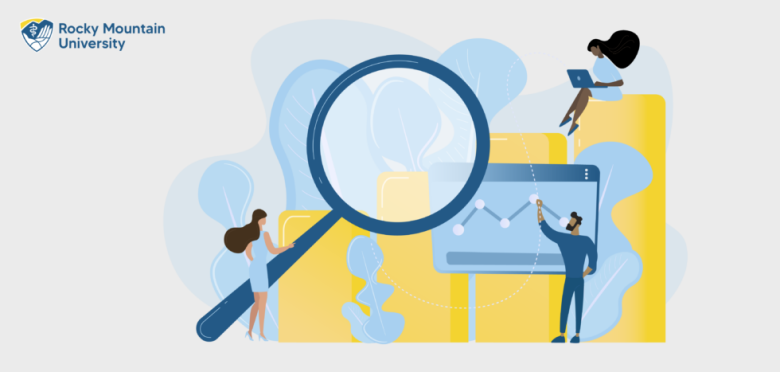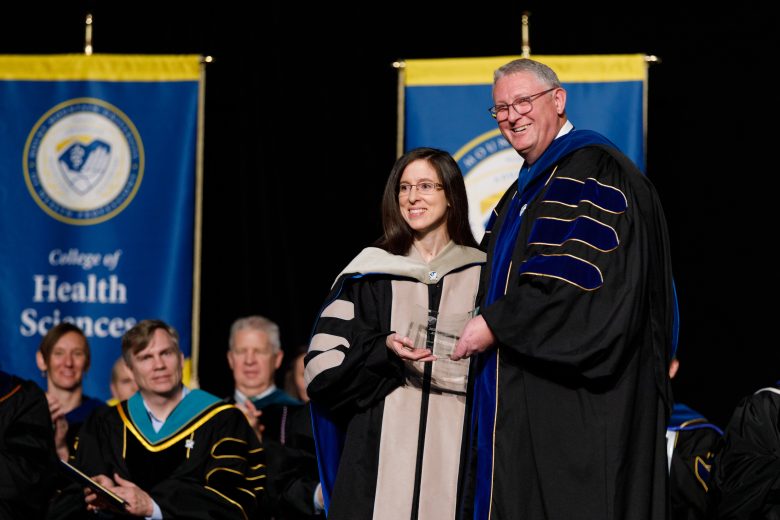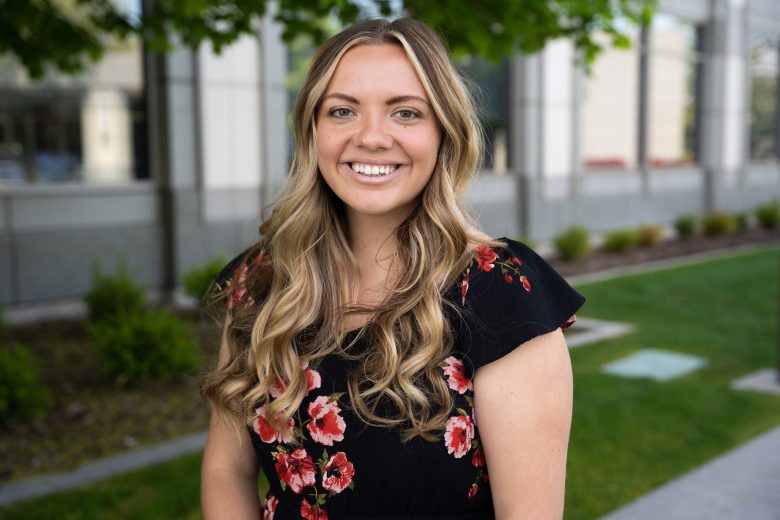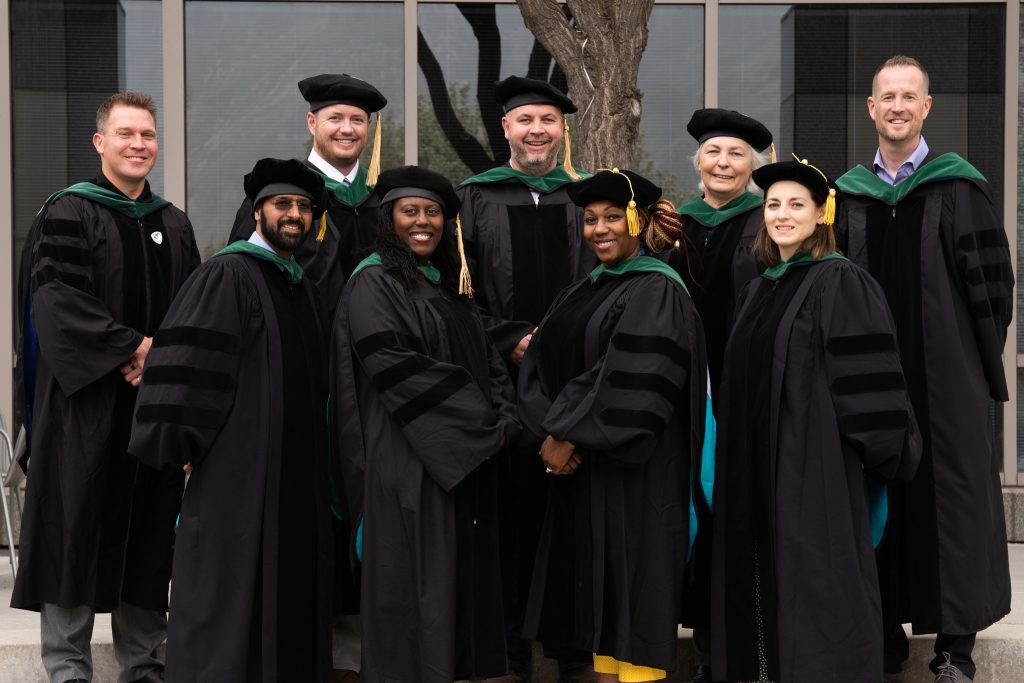
With mental health disorders on the rise, healthcare workers who focus on mental health conditions have become even more important. However, the increased demand for such services has created a strain on both the mental healthcare workforce as well as the patients who are unable to get the help they need.
Healthcare professionals of all types are working hard to meet the increased demand for mental health services. Physician associates (PAs), formerly called physician assistants with the profession’s recent name change, in particular, have stepped up in a big way. Rocky Mountain University of Health Professions’ (RMUoHP) own Doctor of Medical Science (DMSc) program provides the opportunity for PAs to obtain additional post-graduate training in psychiatry, helping them meet this growing demand for services.
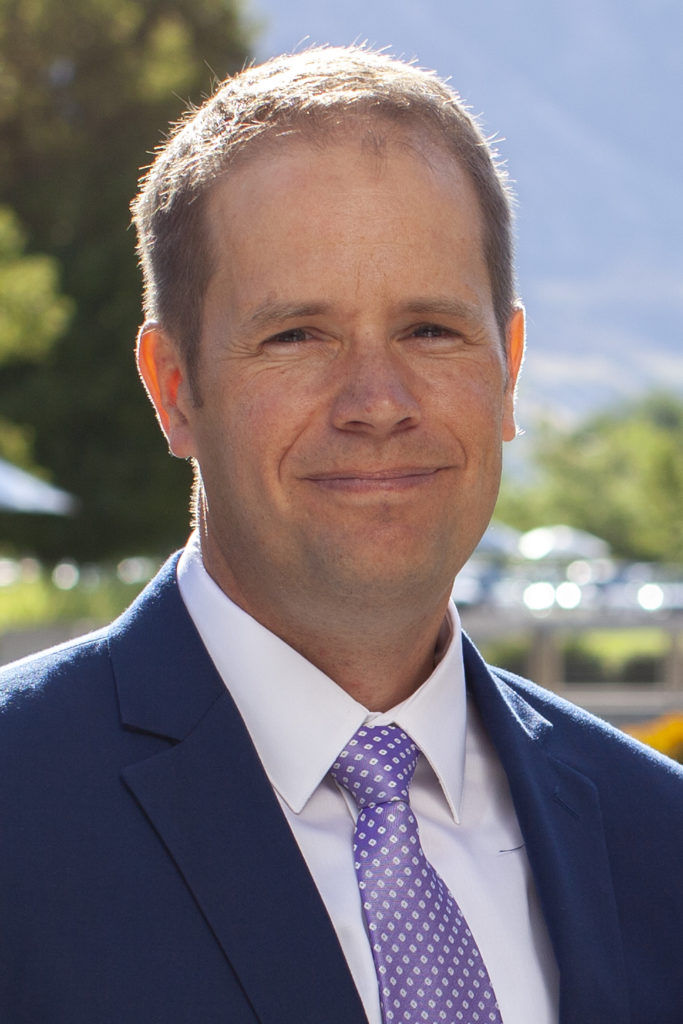
“RMUoHP’s DMSc Psychiatry program is all about improving access to quality psychiatric care for patients wherever PAs are working,” explains Tim McCreary, DMSc, PA-C, CAQ-PSY, the Psychiatry concentration track director for the DMSc program. “PAs have been delivering high-quality care for decades. PAs are trained to identify gaps in medical services, services that patients need, and step into that breach. They meet patients where they are at, treating their immediate needs, and right now, that means more mental healthcare.”
As the demand for mental health services has skyrocketed, PAs from around the country are looking for additional training and tools to help them continue to provide the best possible care to their patients.
McCreary adds, “Our recent graduates and current students consistently tell us that the psychiatry program at RMUoHP provides a supportive but rigorous educational experience that has helped them achieve their clinical and professional goals. Many of these talented PAs serve in isolated, underserved communities–providing care to some of our most vulnerable populations all over the country. They’re working with people who really need them.”
Jo Hughes, MMS, PA-C, CAQ-Psychiatry, a student in the DMSc program, explains the complexities of mental health.
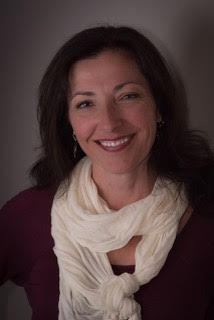
“Individuals, particularly youth, who have mental health conditions might be struggling with past/current traumas, social anxiety (returning to in-person learning), poor academic performance (from poor virtual learning participation over the past two years), and poor sleep hygiene–those are among the top concerns parents, school administrators and adolescents themselves report,” explains Hughes. “The pandemic amplified these conditions creating more community need for treatment with an already maxed-out psychiatric community. It has been the perfect storm for severe psychiatric illnesses in our young people”
She adds, “Before we can provide care for those suffering with mental health disorders, the patients themselves or their family and friends need to recognize the signs that they might be in trouble. Look at factors like poor appetite, more headaches and/or stomach aches, poor sleep, a loss of interest in life, and withdrawing from friends and family, intrusive troubling thoughts or excessive worry. If these symptoms are sustained for more than a few weeks, then it’s time to get some help,” advises Hughes.
“However, if the individual is suicidal, it is time to get an emergancy evaluation or call the national hotline for suicide prevention,” says Hughes. There are also individual state and regional resources, such as the Stabilization and Mobile Response resources through the Utah Department of Human Services.
By providing PAs, from all areas of medicine, with additional training in mental healthcare, patients have more points of access for the help they need.
“There have always been unrecognized and under-treated mental health conditions,” explains McCreary. “People are afraid to admit they need help, but attitudes are changing. The COVID-19 pandemic has put the world in a pressure cooker–no one is immune from stress, our lives and routines have forever changed and many of us have losses of loved ones. It’s not just ‘OK’ to ask for help–it’s wrong not to.”
McCreary continues, “Life is precious, it is worth making the most of the time that we have with our families and friends, and to be able to enjoy our own company too! PAs are stepping up to meet the need, and our educational programs are finding ways to step up too. It is an enormous lift to all of us at the DMSc program to take part in providing these healthcare heros with the support and tools they need to confidently confront the emerging mental health pandemic.”

